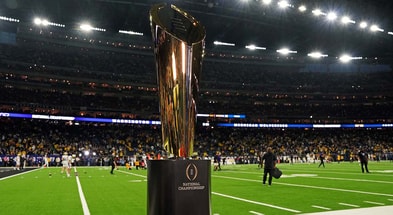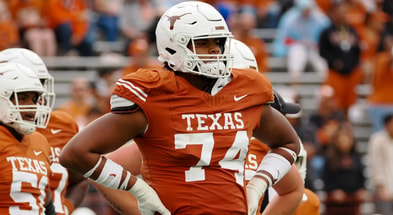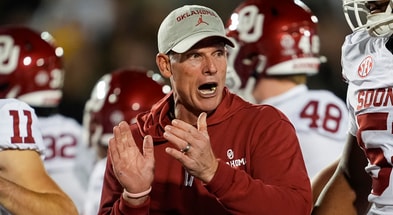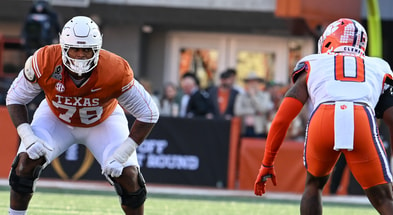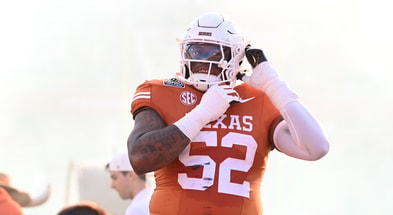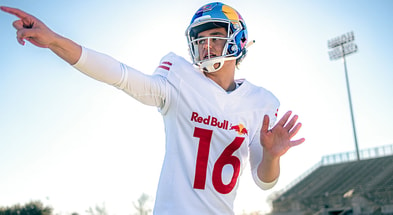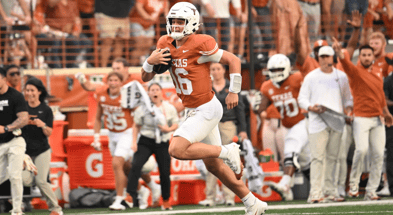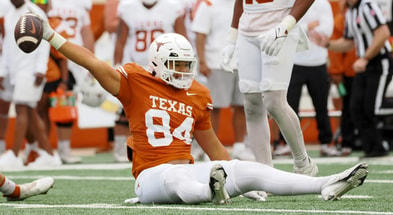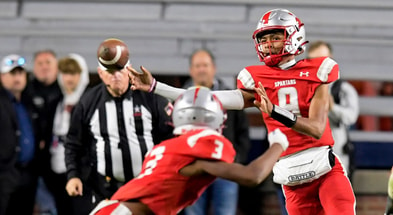How Texas educates Longhorn athletes, coaches on the NCAA's sports betting restrictions when gambling is ubiquitous

“Don’t Bet On It.”
[Get SIX MONTHS of Inside Texas Plus for only $29.99!]
NCAA literature for student-athletes and athletic department personnel doesn’t mince words when it comes to wagering. Personnel and athletes are prohibited from placing wagers on any competition featuring a sport sponsored by the NCAA. Other seemingly innocent games of chance like March Madness pools, fantasy football leagues with a buy-in, or Super Bowl squares are impermissible for anyone in the college athletics sphere to participate in.


Those restrictions have come to the forefront of the college football and basketball offseason in recent weeks. Former Alabama baseball head coach Brad Bohannon’s involvement in a sloppy operation that saw him leak inside information to bolster a contact’s eye-raising wager was just the first to hit the news cycle. Student-athletes and personnel at both Iowa and Iowa State, two schools within the confines of one of the over 20 states with legalized sports wagering, have been linked to gambling instances that have drawn attention from law enforcement.
The state of Texas currently has heavy restrictions on sports wagering, restrictions likely to stay in place with how current Lone Star State political leadership views the topic. But the prevalence of odds around the country on college athletics has brought those restrictions and the idea of competitive integrity into focus, especially with regards to one of the most recognizable and bet-upon teams in the NCAA.
For all involved, the ”Don’t Bet On It” tagline doesn’t need many caveats. A Longhorn women’s tennis player cannot place a bet on a game between the Atlanta Falcons and the Tampa Bay Buccaneers due to the fact that the NCAA sponsors football.
UT compliance and media relations detailed to Inside Texas how they do their part to ensure Texas can aspire to its goal of ”winning with integrity.” In addition to the standard NCAA literature, Texas offers student-athletes in-person education about sports wagering rules during orientation and at an education session at the end of each year. They also include prohibition language on sports wagering in the athletic department’s student-athlete code of conduct that all Longhorns must acknowledge prior to competition.
For staff, similar in-person education is given during new hire orientations. They also attend in-person classes and receive periodic email reminders about the restrictions ahead of heavily-wagered events, among other repeated reminders.
“From an adult standpoint and a coaching standpoint, we know the rules and the rules are the rules,” Texas women’s basketball head coach Vic Schaefer said in San Antonio on Tuesday. ”As far as our kids, we educate our kids from day one.”
Added UT baseball head coach David Pierce on Thursday, ”they know the rules and they know that we stand for integrity and that we’re not going to cheat. We’re not going to do things the wrong way.”
It’s evident various Cyclones or Hawkeyes didn’t heed the same message. Both schools recently acknowledged ongoing investigations pertaining to online sports wagering. ISU said 15 student-athletes from football, wrestling, and track were allegedly in violation of NCAA rules, while Iowa announced 26 current Hawkeyes in baseball, football, men’s basketball, men’s track, and men’s wrestling, plus an athletics employee, were part of an investigation. Iowa even said it was notified of ”potential criminal conduct.”
“It’s just about educating and unfortunately trying to learn from other people’s mistakes,” Texas football had coach Steve Sarkisian said in Dallas on Wednesday.
Sarkisian said that sports wagering apps and websites have geolocation features to ensure they are only taking wagers from users in states where sports betting is legal. Whether or not that location data is what tipped off individual schools, the NCAA, and law enforcement about the situations in Iowa is not yet clear.
However, there are ways for schools and leagues to monitor for data that could indicate the integrity of a certain competition is in question. The Big 12 and the SEC are two of many college and professional leagues that use US Integrity, which according to its website identifies “suspicious behavior by analyzing changes in betting data against a benchmark of normal betting activity.” The organization makes note of line movement and betting analysis, misuse of insider information, notable player or coaching events, and monitors referee.
Within college sports, the second and third pillars — misuse of insider information and notable player or coaching events — is a touchy subject. There’s no standardized injury reporting system like there is in professional leagues, nor is there a base level of media access mandated like in the NFL or the NBA.
“When you play at the University of Texas, I don’t care what sport it is, you’re on the board in Vegas,” Schaefer said. “We educate them from the get-go about our team, the privacy of our team, injuries, all that.”
Schaefer would add, “we really try to keep our information private. It is private, and it’s not for public consumption. When it is, the head coach will give it to you.”
Sarkisian is similarly stingy with injury info. He didn’t reveal that star wide receiver Xavier Worthy played with a broken hand for much of the 2022 season until the beginning of spring drills in 2023.
The privacy of those details are crucial from a coach’s perspective, but it also has a tremendous impact on the betting market. Any information available to a select few that is then disseminated or utilized in a way to beat the books is going to garner attention from organizations like US Integrity, if not law enforcement.
Top 10
- 1New
Coach altercation with fan
Wild ending in Georgetown, Xavier
- 2
Tom Osborne
'NCAA has become somewhat irrelevant'
- 3
Xavier Worthy
Lofty expectations for Arch Manning
- 4Hot
2025 CFB Win Totals
Front-runners for title revealed
- 5
'Where were you?'
Greg Brooks Jr.'s father to Brian Kelly
Get the On3 Top 10 to your inbox every morning
By clicking "Subscribe to Newsletter", I agree to On3's Privacy Notice, Terms, and use of my personal information described therein.
“Those are the types of things that we have to be very straight to the point with our players and our coaches about,” Sarkisian said. “There’s no way around this thing. We’ve just got to be mindful and be smart, and make good decisions.”
Looking at Alabama, Bohannon’s behavior that cost him his job certainly is an outlier. Most head coaches value their six- or seven-figure employment enough to not jeopardize it, especially in a manner that could effectively result in being blackballed from another opportunity in the coaching ranks.
[Subscribe to the ON TEXAS FOOTBALL YouTube channel for daily videos from Inside Texas!]
But it does indicate plenty about how intertwined wagering is with college sports in 2023. On3 and Inside Texas have both published countless articles discussing Texas’ odds to win the Big 12 championship and other propositions sportsbooks will take money on.
All that shows how important it is for athletic departments to make sure to nip any chance for impropriety in the bud.
In addition to education on restrictions, teams also attempt to instill into athletes the need to keep inside information inside. That’s not just limited to injuries, but that’s where most of the focus goes.
Of course, the media doesn’t always adhere to the preferences of athletic department personnel. News-breakers and outlets report injury information gathered from multiple sources. Once that information is reported, it’s out in the open for all to see, books and bettors alike.
While coaches may not like that, it pales in comparison to the negative effect something like sending still-private information such as the scratching of a Friday night starter in an SEC baseball game to a friend at a sportsbook to ensure he receives better odds on his multi-unit bet. That’s eventually how the Bama baseball story made its way back to Bohannon, resulting in his dismissal.
There’s palpable momentum nationwide for sports wagering, and college athletics is a critical aspect of that momentum.
The momentum requires maintaining the integrity of competition. There are a number of aspects that go into integrity, with the athletes and coaches on the field two of the most important. Texas has made a concerted effort to ensure anyone representing the Longhorns operates within the rules and strives to live up to a phrase in the signature of emails from athletic department employees: winning with integrity.
Plus, Texas puts equivalent effort into educating those in burnt orange about what they are or aren’t allowed to participate in, trying to make it as cut and dried as possible. Teams also try to stress a “what happens here, stays in here” philosophy so as not even to have a chance of crossing any legal lines, let alone jeopardizing the effort for victory.
In the current climate, those tasks are not as simple as they once were. Potential NCAA violations are within arm’s reach if a cell phone with a certain app is nearby.
Consistent effort from compliance offices and the athletes themselves is required when the specter of wagering is everywhere.
As Pierce put it, “you kind of have to keep your head on a swivel as well.”





